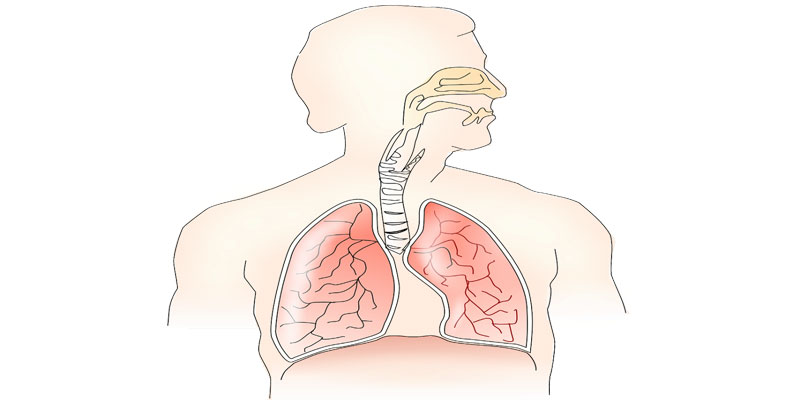What is Asthma?
An Asthma Attack is a sudden worsening of your breathing caused by tightened muscles around the airways. During a severe attack, airways become swollen and produce abnormal amounts of mucus leading to difficulty in breathing.
Symptoms of an Asthma Attack:
- Anxiety/Panic Attack
- Difficulty in Breathing
- Wheezing
- Shortness of Breath/Chest pain
- Nonstop Coughing
Most people have Mild Asthma Attacks meaning that they can easily be treated at home. Sometimes, the condition of the patient worsens so much that it becomes necessary for him to receive emergency treatment at the hospital.
Diagnosis Procedure for Asthma:
The patients need to receive a full diagnosis of their lung function. Different procedures are performed to check Lung function in Asthmatic Patients. It helps to pinpoint the problem and devise a strategy to prevent future attacks.
Different types of procedures are listed below:
- Pulse oximetry
- Spirometry
- Peak Flow
Pulse oximetry:
This procedure checks oxygen levels in your blood. This is a very simple procedure to rule out any oxygen deficiency in your bloodstream, it only takes a few seconds to perform this test.
Spirometry:
This procedure is to check your lung capacity &'' function. It requires taking deep breaths and exhaling the maximum amount of air in one second into a device called a spirometer.
Peak Flow:
This is a very easy and simple procedure and it can be performed at home as well. It is used to determine the amount of air you can exhale during an Asthma Attack.
Treatment for an Asthma Attack:
Treatment for an asthma attack varies from person to person. People feel different types of symptoms during an asthma attack.
A doctor can make an effective plan to manage your symptoms. Most plans include using an inhaler and taking a certain amount of puffs for treating the attack. Children who find it difficult to use the inhaler can be nebulized during this situation.
Types of inhaler medication:
Albuterol:
- Ventolin HFA
- Proventil HFA
- Pro Air HFA
Levalbuterol
- Xopenex
Risk factors that can cause Asthma attacks:
- Chronic Health conditions such as Lung diseases, heart problems, or sinusitis
- History of emergency hospitalizations during an Asthma Attack
- Using more than one Inhalers in a month
- Previously received intubation treatment for an Asthma Attack
- Smoking &'' working in a harmful chemical induced environment
- Different types of Allergies such as Pollen Allergy etc.
- Sensitivity to Spicy foods &'' cold drinks
Complications that can arise during a Life threatening Asthma Attack:
- Can greatly affect work-life balance, disruption in daily activities
- Can cause stress levels to rise resulting in cardiac arrest &'' death in rare cases
- Can cause bleeding due to severe cough
- Permanent Damage to the lungs in severe cases
How to prevent a life-threatening Asthma Attack?
Prevention is always better than cure so it is really necessary to take steps that can prevent Asthma Attacks to happen again. It is advised to take proper medicine prescribed by the doctor either in the form of medicine or an inhaler. Medicines should always be taken on time.
People with Allergies should prevent eating spicy foods &'' Cold drinks that can trigger an Asthma Attack. Anything that triggers or worsens your condition should be avoided at all costs.
Lifestyle changes are really important when you are dealing with Asthma. This disease can only be controlled by eating a balanced diet, hands should be frequently washed t avoid any risk of viruses.
A person with Asthma should follow a disciplined timetable to prevent a life-threatening Asthma condition. It is advised to inhale steam and cover your face with a warm cloth after an asthma Attack to stabilize the situation.
Conclusion:
In this article, we discussed many steps to treat a life-threatening asthma attack. Different types of diagnostic tests are available to evaluate a patient’s medical condition. They help to pinpoint the major culprit behind the issue and offer the best treatment to treat the disease.




